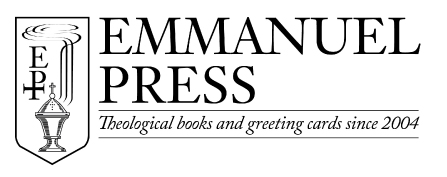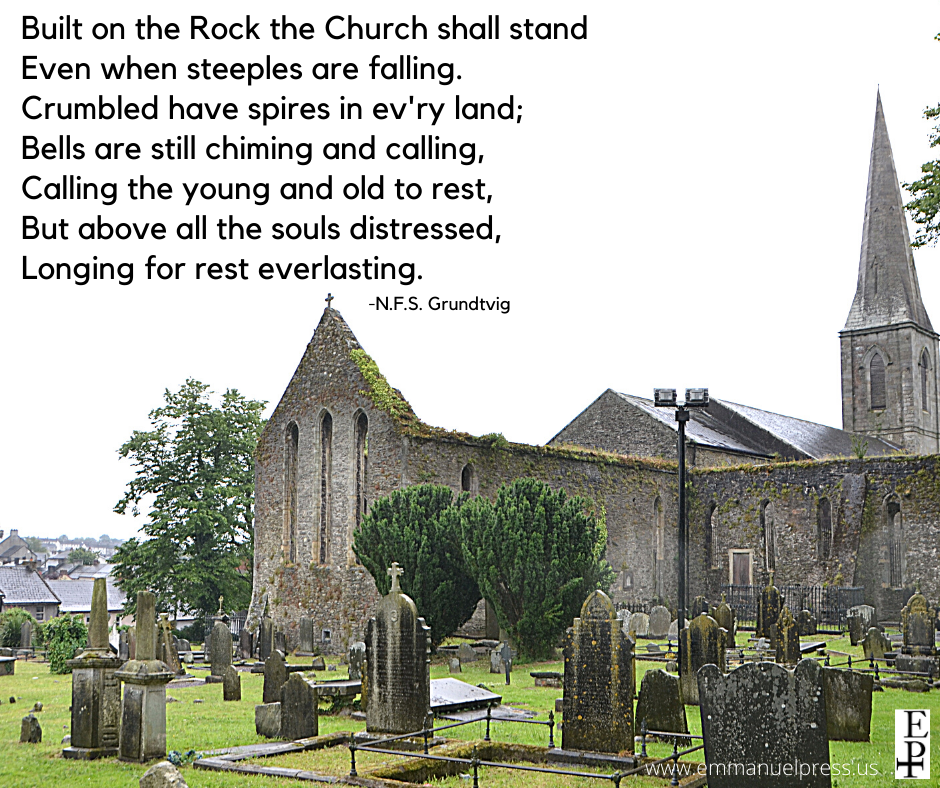A review from Pr. Todd Peperkorn: “Both exhausting and liberating”
 “The book in many ways is both exhausting and liberating. It is exhausting, because of the vulnerability and courage shown by these women. They each have their own voice. They each have their own crosses to bear. Yet somehow, through it all, the Gospel of Jesus Christ shines through. They tell the story of the God who is ever present with His people, who walks with them through the valley of the shadow of death, and who never leaves their side, no matter what the trial. It doesn’t matter if they are talking about the burden of disease or death, single-hood or dementia, they share this language of faith in a way that I did not expect.
“The book in many ways is both exhausting and liberating. It is exhausting, because of the vulnerability and courage shown by these women. They each have their own voice. They each have their own crosses to bear. Yet somehow, through it all, the Gospel of Jesus Christ shines through. They tell the story of the God who is ever present with His people, who walks with them through the valley of the shadow of death, and who never leaves their side, no matter what the trial. It doesn’t matter if they are talking about the burden of disease or death, single-hood or dementia, they share this language of faith in a way that I did not expect.
“But vulnerability is exhausting. It lets other people into your life. It gives them a place at your table, and you at theirs. It’s why true vulnerability is so rare. It is easy to have a strange kind of pride in suffering and sorrow. LOOK AT ME, we might be saying. But that’s not the voices of these authors. They see their own weaknesses and fears. They see how Satan has tried to sift through them. But more importantly, they see what it means to be one in the body of Christ, in communion with God and with each other. It is a rare treat. I feel like I’ve had a peek into an important family conversation, and I am all the more blessed for it.
“What I like the most about these essays is that they hit the challenges head on. They don’t sugar coat. They don’t turn the Gospel into the over sweet saccharine of the false hope of our age. Real sin demands a real savior, who really died, and really rose again from the dead….”
Read the entire review here. Find excerpts, author interviews, and purchase information for He Restores My Soul.
Apostolic Agenda to release on May 15
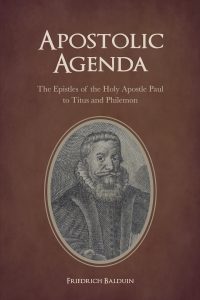 We are very pleased to announce that Apostolic Agenda: The Epistles of the Holy Apostle Paul to Titus and Philemon will be released tomorrow, May 15, 2020. That means that today is the last day to pre-order for 10% savings on this book along with discounted prices on all of our other books. Browse our collection by hovering over the Books tab in the black bar above.
We are very pleased to announce that Apostolic Agenda: The Epistles of the Holy Apostle Paul to Titus and Philemon will be released tomorrow, May 15, 2020. That means that today is the last day to pre-order for 10% savings on this book along with discounted prices on all of our other books. Browse our collection by hovering over the Books tab in the black bar above.
On Tuesday, May 12, after morning chapel, Seminarian and Pastor-elect Mark Kranz presented the book to Concordia Theological Seminary on behalf of the class of 2020. The idea for this project goes back several years. In January 2017, the students voted to commission an English translation of a work by “one of our forefathers in the Office of the Holy Ministry” under the guidance of Dr. Benjamin T.G. Mayes. You may watch the presentation here starting at about minute 46. After offering greetings and introductory remarks, Mark Kranz read a letter from Dr. Mayes, which follows below.
the Office of the Holy Ministry” under the guidance of Dr. Benjamin T.G. Mayes. You may watch the presentation here starting at about minute 46. After offering greetings and introductory remarks, Mark Kranz read a letter from Dr. Mayes, which follows below.
_________________
Dear Pres. Rast, Dr. Gieschen, Mr. Kranz, and all the students, professors, and friends of Concordia Theological Seminary,
Grace and peace in Christ our Lord!
Why this book? I think the author, Friedrich Balduin (1575–1627), is an important theologian for us to meet, on account of his exegesis, casuistry, and his opposition to the Socinians. But more than that, the real significance is that here we have a Lutheran Orthodox commentary on Titus (a pastoral epistle) and Philemon. This is the first Lutheran Orthodox commentary on these books in English. In fact, I know of no Lutheran commentaries on these books in the English even from the Reformation era. This commentary, along with Johann Gerhard’s commentaries on Scripture, show us a little of the vast exegetical treasures of the early Lutheran church that are locked away in German and Latin. Now people are starting to see what good things have been hidden for so long. This exegesis is doctrinal, not according to the still-too-common stereotype of an Orthodox exegesis that would force the biblical text to conform to pre-established dogmatic categories, but according to the truth. It is a thorough, philological exegesis of the biblical text in conversation with the early church fathers and contemporaries. Here exegesis is not forced into dogmatic categories, but the Lutheran Orthodox theology arises from the biblical text. And this exegesis is clear and leads to both doctrine and practice, especially as Balduin applies it in teaching, admonishing, warning, and consoling Christians. It is a model for our exegesis and pastoral practice today. That’s why this book is important.
The team that contributed to the translating, editing, and publishing include:
Eric G. Phillips, translator of the Titus commentary
James L. Langebartels, translator of the Philemon commentary
Mark Kranz, project manager
Nathaniel Jensen, Berett Steffen, and myself, editors
Trae Fistler and Blake Martzowka, editors of Greek text
Roger Peters, cover photo
Gary Zieroth, advisor and seminary authority for the project
Michael and Janet Frese of Emmanuel Press, layout, publication, and distribution
Meghan Schultz, cover design.
Finally, the patrons of the translation include the M.Div. students of the class of 2020, along with AR students who have already graduated and are serving congregations, and with deaconess students who are at various stages of their program. These are the students who contributed the funds to make this dream a reality. My role was to organize and advise the project from start to finish.
I give thanks to God on this day that this excellent Lutheran commentary on Titus and Philemon has come to light.
Yours in Christ,
Dr. Benjamin T.G. Mayes
May 7, 2020
“As we worship, so we believe” – Lex orandi, lex credendi
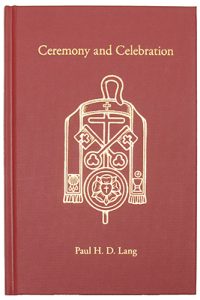 *Note: All books are on sale to celebrate the upcoming release of Apostolic Agenda.
*Note: All books are on sale to celebrate the upcoming release of Apostolic Agenda.
“Our attitude toward human rites and ceremonies is evangelical, not legalistic. Rubrics and directions do not proceed from the Law but from the Gospel. We do not want conformity on the basis of legal compunction, but on the basis of our new life in Jesus Christ by which we are made free from the curse of the Law and are enabled by the Holy Spirit to live more and more in Christian love and liberty.” (p. 22)
“Ritual and ceremonial are component parts of the liturgy. They are materials of the liturgy, the things involved in doing the liturgy….Ritual refers to that part of a divine service which consists of its words, that is, the rite or the order of service….Ceremonial is everything connected with the performance of a rite. It refers not only to bodily expressions, such as speaking, singing, kneeling, bowing, making the sign of the cross, and the outward observance of the church year, but also to the ornaments, symbols, and material objects employed in the church’s worship, for example, the church building, the altar, crucifixes, candles, and vestments. Ceremonies are solemn religious things and actions….Rites and ceremonies are an outward expression of what a church believes and teaches. An ancient Latin formula puts it this way: Lex orandi lex credendi. ‘As we worship so we believe’ or ‘as we believe so we worship.’ The externals in worship are a means of communication which people understand and by which they are often affected more readily and powerfully than by words.” (p. 6, 11)
Ceremony and Celebration by Paul H.D. Lang is an excellent resource for anyone who wants to better understand why we do what we do in the Divine Service. As noted in the Preface, there is “a pious desire of both pastors and parishioners to be reverent in worship. That is the genius of this little book: It speaks to all participants in the Divine Service, not just pastors and theologians.”
The Divine Service is where Christians gather around Word and Sacrament. Its liturgy provides the structure for keeping Christ as the central focus. The words, music, actions, and physical elements of the Divine Service all play a role in the liturgy. Pastors and parishioners join together to receive God’s gifts, each playing a distinct yet integral part as defined by the liturgy, in accordance with God’s will (Heb. 10:25; 1 Cor. 14:40).
An excerpt from The Great Works of God: Exodus
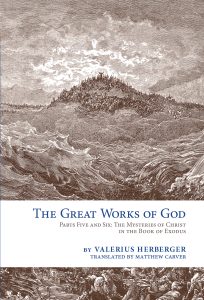 *This title is currently 10% off to celebrate the upcoming release of Apostolic Agenda.
*This title is currently 10% off to celebrate the upcoming release of Apostolic Agenda.
The Israelites could have reached the Promised Land in twelve days, had they been allowed to travel in a straight line. But God knew that would not be good for the Israelites, so He led them in a wide circle, for He saw their frailty. No kink or crook is found in a good and pleasant way around. Of course, God understands better than we how to lead, guide, and govern us. So let us humble ourselves under His mighty hand (1 Pet. 5:6), and not resist His will, but stop and go and follow and move how and where He wishes. All things must work together for our good (Rom. 8:28). He will make the temptation to have an end, that we may be able to bear it (1 Cor. 10:13).
Oh, how our minds are pricked when we see the good life lying before us and cannot instantly get it! What pangs fill our hearts when we are made to suffer on strange, rough, winding ways. Yet he is a wise and blessed man who does not try to overrule the Lord God’s counsel.
The Israelites were to go forth into the Promised Land, but God went before them on the road through the wilderness to the Reed Sea.* Whoever is to make the journey into eternal life must first be led into the wilderness of this world’s misery. He who would inherit heaven with Christ must first suffer and die with Him [Rom. 8:17].
________
An excerpt from The Great Works of God: The Mysteries of Christ in the Book of Exodus by Valerius Herberger, translated by Matthew Carver
*this spelling is explained in a later paragraph
Coming Soon – Apostolic Agenda: The Epistles of the Holy Apostle Paul to Titus and Philemon
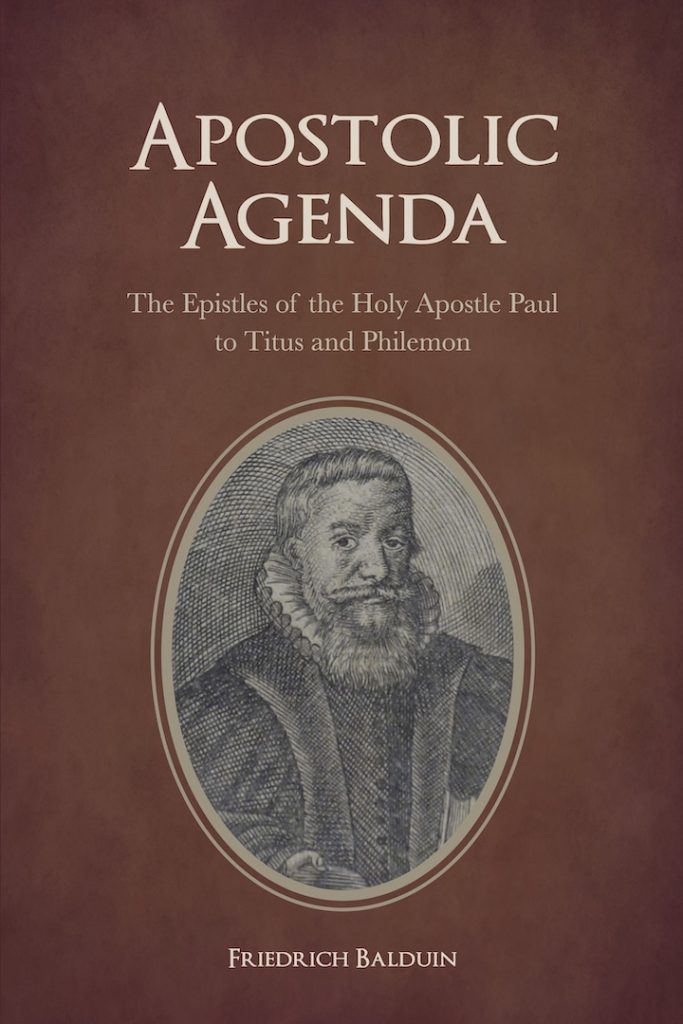 It is an honor to announce our partnership with a large host of students* of Concordia Theological Seminary – Fort Wayne to publish Apostolic Agenda: The Epistles of the Holy Apostle Paul to Titus and Philemon. This translation, which is the first full-length work of Friedrich Balduin available in English, was commissioned and funded by these students as their class gift in appreciation of Concordia Theological Seminary and to edify the hearts and minds of Christ’s Church.
It is an honor to announce our partnership with a large host of students* of Concordia Theological Seminary – Fort Wayne to publish Apostolic Agenda: The Epistles of the Holy Apostle Paul to Titus and Philemon. This translation, which is the first full-length work of Friedrich Balduin available in English, was commissioned and funded by these students as their class gift in appreciation of Concordia Theological Seminary and to edify the hearts and minds of Christ’s Church.
Apostolic Agenda is now available for pre-order (10% off) with an expected release in mid-May. To celebrate our newest title, we are holding a site-wide sale on all books! Browse our collection by hovering over the Books tab in the black bar above. (Apostolic Agenda will ship when released; all other books will ship promptly after the order is placed. This essentially means free shipping for the new book!)
Dr. Benjamin Mayes notes in his Introduction that “Friedrich Balduin was a significant Lutheran theologian of the early 17th century, a well-respected exegete and churchman in his day, who deserves to be rediscovered in our day.” In Apostolic Agenda, Balduin divides Titus and Philemon into sections, first giving the original text with a translation printed alongside. He then offers his analysis and explanation of the text, explaining the context of each verse, indicating parallels to other biblical passages, and discussing other aspects such as geography and history that aid in understanding. Next, Balduin follows up with theological questions, which Dr. Mayes indicates are “often taken from the Bible commentaries of opponents, who used the biblical text to try to prove false doctrine. This is where Balduin shines as a casuist [that is, one who studies cases of conscience].” Finally, he concludes with insightful theological summary statements of doctrines (aphorisms) gathered from the text in an enumerated list. (Visit the Apostolic Agenda page to download a sample of Chapter 1.)
As Berett Steffen, an M.Div. student involved in the book’s editing, points out, “While there are enough complex arguments and obscure references to the classics and other works of antiquity to keep professionals entertained, there is just as much in the way of clarity, application, and simple, well-done exegesis to edify Christians at any theological level.” Indeed, Balduin seeks to teach all Christians about the heart of the faith – the life, death, and resurrection of Jesus Christ for the forgiveness of sins.
*These 56 students are comprised of those from the Master of Divinity class of 2020, the Alternate Route class of 2019, and deaconess students in various degree tracks.
Excerpt for Holy Saturday
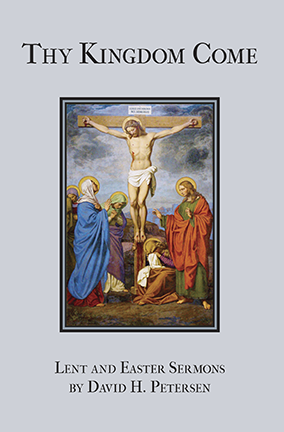
“This Jesus, who was crucified, who went as weak as a kitten to the cross, has sapped the devil of all his strength. The trickster has been tricked. He ate the fruit that hung from the tree on Calvary, tempted and beguiled like Eve in the garden. He ate, and now his belly bursts. His jaws are seared shut. He can take no more. He is done, finished, over. He has no accusations left. He hurled every last one of them at the Christ, and the Christ has answered for all of them, and there are none left for us or for anyone. Jesus died to take them away.”
-David H. Petersen in Thy Kingdom Come
Thy Kingdom Come: An Excerpt from Holy Monday
“The Son of Man is glorified by being lifted up from the earth. If you would see Him, if you would behold Jesus, behold Him there. There, and there alone, you might gaze upon God’s glory and not be destroyed, for you gaze upon where and how He was destroyed for you. There you might look into the things that the prophets longed to see and kings desired. There you will know the love God holds for you and the cost He has gladly paid to make you His.”
-David H. Petersen, author of Thy Kingdom Come
The Brotherhood Prayer Book: Hymn for Judica (5th Sunday in Lent)
Audio: Listen to Hymn for Judica chanted.
Sing, my tongue, the glorious battle,
Sing the last, the dread affray;
O’er the cross, the victor’s trophy,
Sound the high triumphal lay,
How, the pains of death enduring,
Earth’s Redeemer won the day.
When at length the appointed fullness
Of the sacred time was come,
He was sent, the world’s Creator,
From the Father’s heavenly home,
And was found in human fashion,
Offspring of the virgin’s womb.
Now the thirty years are ended
Which on earth He willed to see,
Willingly He meets His passion,
Born to set His people free;
On the cross the Lamb is lifted,
There the sacrifice to be.
There the nails and spear He suffers,
Vinegar and gall and reed;
From His sacred body pierced
Blood and water both proceed:
Precious flood, which all creation
From the stain of sin hath freed.
Faithful Cross, above all other,
One and only noble Tree,
None in foliage, none in blossom,
None in fruit thy peer may be;
Sweet the wood, and sweet the iron,
And thy load, most sweet is He.
Bend, O lofty Tree, thy branches,
Thy too rigid sinews bend;
And awhile the stubborn hardness,
Which thy birth bestowed, suspend;
And the limbs of heaven’s high Monarch
Gently on thine arms extend.
Thou alone wast counted worthy
This world’s Ransom to sustain,
That a shipwrecked race for ever
Might a port of refuge gain,
With the sacred Blood annointed
Of the Lamb for sinners slain.
Praise and honor to the Father,
Praise and honor to the Son,
Praise and honor to the Spirit,
Ever Three and ever One:
One in might, and One in glory,
While eternal ages run. Amen.
__________
Pange lingua gloriosi praelium, V. Fortunatus, 6th century, trans. by J.M. Neale
Found in The Brotherhood Prayer Book and its accompanying CD.
